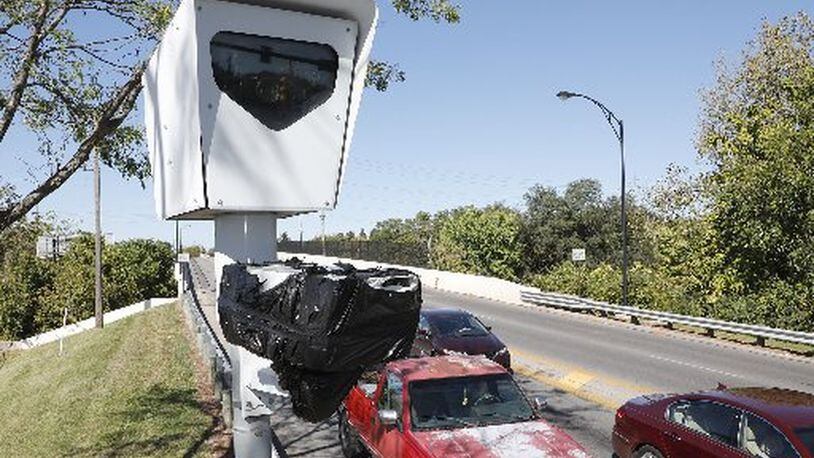The organization, which has raised concerns about traffic cameras being installed only in poor communities, did not come close to gathering the number of valid signatures required to put a charter amendment on the Nov. 6 ballot, Dayton Unit President Derrick Foward said.
“It definitely ends our ballot initiative here this year,” he said. “I mean, it’s very simple, we fell short.”
Dayton City Commissioner Matt Joseph said the petition drive shows that the city needs to do a better job of communicating why and how it uses cameras to make Dayton’s roadways safer.
RELATED: Why the NAACP wants Dayton voters to decide on traffic cameras
In late June, Dayton Mayor Nan Whaley partly credited speed and red light cameras for a 15 percent reduction in injury crashes citywide through the first half of the year.
Critics have accused Ohio cities of using traffic cameras primarily to generate revenue. Mobile speed trailers in Dayton have already issued 12,986 citations since the city restarted its traffic safety camera program.
The Dayton Unit NAACP began circulating petitions for a charter amendment in late May. But the deadline to submit the petition has passed, and supporters fell short of getting the signatures they needed.
Under the Ohio Constitution, proposed amendments to city charters require a petition signed by at least 10 percent of electors in the municipality, based on the number of votes cast in the most recent general municipal election. About 29,929 votes were cast in the November 2017 Dayton City Commission races.
Foward said they got plenty of signatures, but too many were invalid.
He said the petition drive did not get the level of community support that organizers expected.
“Each one of our circulators came back and said it’s a mixed bag,” he said. “Some people want the cameras, some people don’t want the cameras.”
Foward said many people who oppose automated traffic cameras are not registered voters and missed an opportunity to have their voices heard.
The Dayton Unit has long expressed concerns that traffic cameras only have been installed in Montgomery County’s poorest communities — like Dayton and Trotwood — which leads to disparate treatment of community members.
Foward said he believes voters would have passed the charter amendment, if it would have made it on the ballot, based on how similar measures have done in other communities.
Foward said the Dayton Unit will continue community conversations about the cameras and is committed to working with city officials try to ensure that citizens don’t feel unfairly targeted.
The cameras have been a source of annoyance for motorists like Roshawn Reynolds, who works at a barber shop on West Third Street, across from one of the city’s mobile cameras.
“I say get rid of them,” said Reynolds, who admits he mainly doesn’t want to get a ticket.
Some critics have claimed that cities install cameras because they are money-makers and then they use public safety as a cover story.
But Commissioner Joseph said the data clearly proves that installing cameras leads to fewer crashes and traffic fatalities.
When the city was forced by the state to shut off its cameras a few years ago, the city had to spend more money on emergency runs and there was a spike increase in accidents, he said.
“Just the fact that this discussion (of a charter amendment) came about means that we have to do a better job communicating why we have these to start with,” he said.
About the Author
